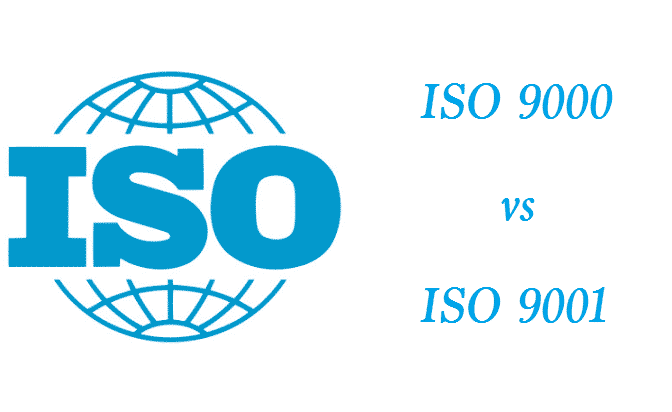ISO 9000 family is a general term of standards, including multiple guidelines of product quality. In the QMS family, we have ISO 9000 and ISO 9001. ISO 9000 covers the basis of QMS, including seven quality management principles as the basis of the standard series. ISO 9001 addresses the requirements that organizations wishing to meet standards must meet. ISO 9001 is a common quality assurance used in lots of countries. ISO 9000 vs ISO 9001, what’s the difference?

Difference Between ISO 9000 and ISO 9001
ISO 9000 is a quality management system, including four core standards, also known as the ISO9000 family. ISO9001 is one of the four core standards in the ISO 9000 system, which is called quality management system requirements. It is a standard that requires enterprises to implement the ISO 9000 certification system. There are many standard documents in the ISO9000 series, such as ISO 9001, ISO 9002, ISO 9003, and ISO 9004. Among them, ISO 9001, ISO 9002, and ISO 9003 are used for assessment. Therefore, the certificate will only be divided into ISO 9001, ISO 9002, and ISO 9003. In fact, there will be no ISO 9000 certificate.
1. Different standards
- ISO9000: ISO 9000 was first published in 1987 by the International Organization for Standardization (ISO). It is based on BS 5750 series standards proposed by BSI to ISO in 1979.
- ISO9001: ISO9001 is one of the core standards of quality management systems included in ISO9000 family standards. Specifically, ISO9001 is a kind of certification for the quality of products and services provided by enterprises. According to the nationally unified certification standards, it reviews the product quality, company documents, management responsibilities, resources, product realization, and company improvement. It obtains certification by writing relevant documents and submitting them to the certification authority for review. ISO9001 is the main standard of ISO9000, which focuses on the needs of customers
2. Different characteristics
- ISO9000: used to prove that the organization has the ability to provide products that meet customer requirements and applicable regulatory requirements, with the purpose of improving customer satisfaction.
- ISO9001: the object of certification is the supplier’s quality system. The object of quality system certification is not a product or service of the enterprise, but the quality system itself.
3. Different scope of application
- ISO9000: it needs to prove its ability to stably provide products that meet the requirements of customers and applicable laws and regulations.
- ISO9001: for organizations with product development and design functions.
The above is the difference between ISO9001 and ISO9000. From the above summary, we can see that 9000 is a standard family, and its standards, characteristics, and scope of application are different. ISO9000 is one of the core standards of quality management systems included in ISO9000 family standards. ISO9000 family of standards is a concept put forward by the international organization for Standardization (ISO) in 1994, Means “by ISO / TC176 (Technical Committee for quality management and quality assurance of the international organization for Standardization) Developed international standards.
ISO9001 is used to prove that the organization has the ability to provide products that meet customer requirements and applicable regulatory requirements, with the purpose of improving customer satisfaction. With the continuous expansion and internationalization of the commodity economy, in order to improve the reputation of products, reduce repeated inspection, weaken and eliminate technical barriers to trade, and safeguard the rights and interests of producers, distributors, users, and consumers, this third certification party is not supported by the economic interests of both production and marketing. It is notarized and scientific. It is a pass for countries to evaluate and supervise the quality of products and enterprises; As the basis for customers to audit the supplier’s quality system; the enterprise has the ability to meet the technical requirements of its ordered products.